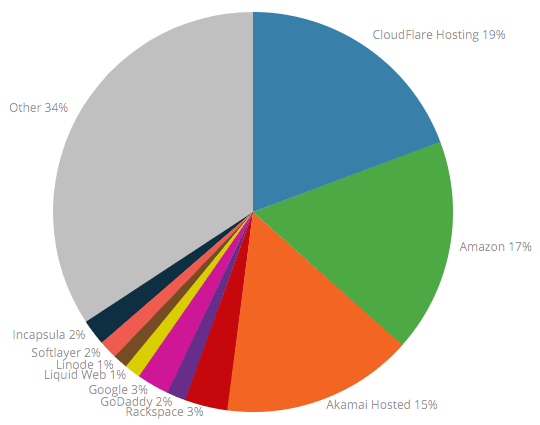The website sits at the heart of any digital marketing strategy when most efforts focus on directing traffic to the website where they can be converted. SEO, content strategy, and social media marketing–each of these is directly impacted by the website.
As marketing has been taking more ownership over the website, website technology has taken strides to meet marketers, making website management less technical and more user-friendly. In fact, most of our firm’s clients are marketing teams pursuing a custom website build and are involved in every major decision of their website’s build, from platform to web design.
The increasingly technical nature of current marketing means that most marketers are also increasingly technically savvy, but one important aspect of the website that often goes overlooked is the website infrastructure.

Website infrastructure–how your website’s data is hosted–is a technical and unseen part of website maintenance, which is why it doesn’t receive a lot of attention. But when it affects your website’s performance, security, uptime, data, and SEO, it’s something that marketing should be just as opinionated about. Here’s what you need to know.
Self-Hosted, Service Providers, and SaaS
Determining the Best Option for Your Website
First of all, there are different ways to approach website hosting, and the most beneficial for your website depends on the nature of your business and your website.
SaaS: The Shopify, Squarespace, and GoDaddy Businesses
SaaS–software as a service platform, host your website on their own servers. The price of that hosting is included in the price of your website and is often fairly minimal. For many small and medium-sized businesses, this is a good option.
However, not owning or having access to your website’s core data can be a blocker for the needs of larger-scale companies. Also, when your website is being hosted by your SaaS provider, it means that your data is being hosted in the same location as the data of thousands of other website owners, which could mean higher security vulnerabilities.
Hosting Service Provider
Hiring a hosting provider allows websites to have more control over their data, effectively paying for server space without having to monitor and maintain those servers yourself. Hosting service providers maintain their own servers and keep them up to date, so you don’t have to roll your own. For businesses with more custom websites that want direct access to their data, a hosting provider is your ideal option. Hosting service providers are also fairly inexpensive.
Beyond providing the servers to host your website’s data, hosting providers also provide manage server security–maintaining updates, monitoring your servers constantly–and technical support. For example, if your website is suddenly facing unexpected downtime most hosting service providers offer 24-hour support.
Custom Server
A custom server is a good option for a business with the IT and development resources required to maintain its servers at all times. This is often a choice for large-scale businesses running an incredibly custom website.
Self-hosting your website means that you have absolute control over your website’s infrastructure–down to the hardware–but it also means that you are alone in maintaining it. Of the three, this is the most expensive option and generally is the best choice in the fewest cases.
Setting the Benchmark For Your Website
Whether you choose to go with an SaaS, hosting service provider, or a custom server, here are some questions you’ll need to ask of your website, your digital marketing strategy, and your own resources.
1. How is my server being updated?
Like all other aspects of your website, your infrastructure should be consistently updated to maintain performance and security. The longer your server goes without a system update, the more vulnerable it is–and unfortunately this is not an uncommon oversight.
2. How do I manage my website? Can my infrastructure handle website updates?
For example, one of the convenient features of a hosting service provider like Pantheon is that it enforces a standardized workflow so that there’s always a stage and a dev environment. Elevating code up to stage enforces the manual movement of code, so that the code is checked three times before it goes live.
3. Cost?
You shouldn’t be paying too much for website infrastructure, and if you are, it might be indicative of the wrong fit. We’ve worked with clients before that come to us with an overbuilt, custom rackspace environment, when hiring a hosting provider would cost them far less.
4. Where is my data going?
Not everything is running on a single system (especially if you have tools integrated with your website) so it’s good to know where your data is going, passes through, and where it’s held. You could be running on entirely different systems on entirely different servers.
5. Who else is on my server?
If your website is sharing server space with 40,000 other websites, your website can be affected by slower sites. Website infrastructure has an immediate marketing impact because the wrong choice can drastically slow down your website and affect SEO.
Right Sizing Your Infrastructure
When website infrastructure has a direct impact on marketing, marketing should be involved in deciding how the website is hosted. If you have any further questions on how your website infrastructure can affect your overall strategy and which solution is best for your website, feel free to reach out for more details.
If you have any additional questions about website infrastructure or hosting services, please feel free to contact us.
